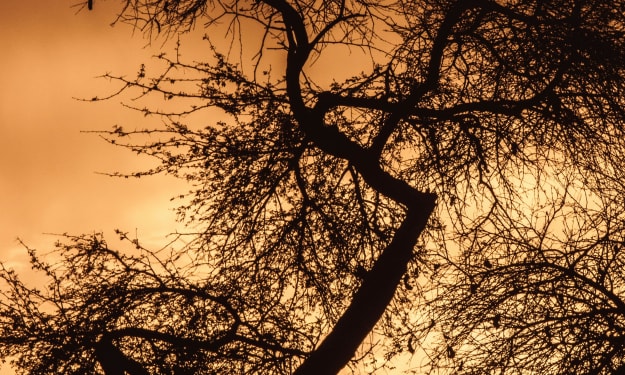Algerian Festivals and Celebrations: A Colorful Display of Tradition.
Explore the vibrant and diverse world of Algerian festivals and celebrations, showcasing the rich cultural traditions and colorful displays that define these joyous occasions.

The Cultural Significance of Algerian Festivals
Algerian festivals hold great cultural significance and are an integral part of the nation's identity. These festivals provide a platform for Algerians to showcase their rich traditions, customs, and beliefs. They serve as a reminder of the country's history and heritage, fostering a sense of unity and pride among the people. Algerian festivals also play a vital role in preserving and passing down cultural knowledge from one generation to the next.
One of the key aspects of Algerian festivals is the celebration of religious events, such as Eid al-Fitr and Eid al-Adha. These festivals mark the end of Ramadan and the culmination of the Hajj pilgrimage, respectively. They are celebrated with great enthusiasm and are characterized by prayer, feasting, and acts of charity. Algerians come together to express gratitude and seek blessings, strengthening their bond as a community.
In addition to religious festivals, Algeria is known for its vibrant cultural festivals, such as the Timgad Music Festival and the International Festival of Arab Cinema. These events showcase the talents of Algerian artists, musicians, and filmmakers, promoting cultural exchange and appreciation. They provide a platform for artists to express themselves and for audiences to immerse themselves in the beauty of Algerian art and culture.
Algerian festivals are often accompanied by traditional music, dance, and storytelling. These performances serve as a form of entertainment and a means of preserving cultural heritage. Traditional music instruments like the bendir and the gasba, along with energetic dance forms like the Raï and the Kabyle, add to the festive atmosphere and create a sense of joy and celebration.
The cultural significance of Algerian festivals cannot be overstated. They are a testament to the country's rich history, diverse traditions, and strong sense of community. These festivals bring people together, fostering unity and promoting cultural pride. They are a colorful display of tradition, reflecting the beauty and vibrancy of Algerian culture.
Traditional Music and Dance Performances
Algerian festivals are known for their vibrant and lively music and dance performances. Traditional music plays a central role in these celebrations, adding rhythm and energy to the festivities. The sound of traditional instruments like the bendir, a frame drum, and the gasba, a reed flute, fills the air, captivating the audience and creating a festive atmosphere.
Algerian dance forms are equally captivating, with each region having its own distinctive style. The Raï dance, originating from western Algeria, is characterized by its lively and energetic movements. It is often accompanied by Raï music, a popular genre that blends traditional Algerian sounds with modern influences. The Kabyle dance, on the other hand, is rooted in the Kabylie region and is known for its graceful and intricate footwork.
These music and dance performances are not only entertaining but also serve as a means of cultural expression. They tell stories, convey emotions, and celebrate the rich heritage of Algeria. Through these performances, Algerians keep their traditions alive and pass them down to future generations. They are a testament to the creativity, talent, and cultural diversity of the Algerian people.
Delicious Algerian Cuisine and Culinary Delights
Algerian festivals are a gastronomic delight, offering a wide array of delicious traditional dishes that showcase the country's culinary heritage. Algerian cuisine is a fusion of various influences, including Berber, Arab, Mediterranean, and French. The result is a unique and flavorful culinary tradition that is sure to tantalize the taste buds.
One of the most famous Algerian dishes is couscous, a hearty and versatile grain dish that can be served with vegetables, meat, or fish. Another popular dish is tajine, a slow-cooked stew that combines meat, vegetables, and aromatic spices. Algerians also enjoy various types of bread, such as khobz eddar, a traditional flatbread, and msemen, a layered pancake-like bread.
Sweets and pastries are an essential part of Algerian festivals. Traditional desserts like baklava, makroudh, and ghribia are made with ingredients like almonds, honey, dates, and semolina. These sweet treats are often enjoyed with a cup of traditional Algerian tea, known for its strong flavor and refreshing qualities.
Algerian cuisine reflects the country's rich cultural heritage and the influence of its diverse population. It is a celebration of flavors, textures, and aromas that delight the senses. During Algerian festivals, visitors have the opportunity to savor these culinary delights and experience the unique taste of Algeria.
Colorful Parade and Processions
Algerian festivals are known for their lively and colorful parades and processions. These vibrant displays showcase the cultural diversity and artistic expressions of the Algerian people. Participants dress in traditional attire, adorned with intricate patterns and vibrant colors, adding to the festive atmosphere.
The parades often feature traditional music and dance performances, with participants showcasing their talents and celebrating their cultural heritage. Floats and decorated vehicles move through the streets, depicting scenes from Algerian history, folklore, and mythology. Spectators line the streets, cheering and applauding as the parade passes by, creating a sense of joy and excitement.
Processions are also an important part of Algerian festivals, particularly religious ones. People gather to walk together in a solemn and reverent manner, carrying religious symbols and chanting prayers. These processions serve as a way to express devotion and seek blessings, creating a powerful sense of unity and spirituality.
The colorful parades and processions of Algerian festivals are a visual feast, showcasing the creativity, artistry, and cultural pride of the Algerian people. They are a celebration of identity, tradition, and community, leaving a lasting impression on both locals and visitors.
Unique Rituals and Customs
Algerian festivals are imbued with unique rituals and customs that add depth and meaning to the celebrations. These rituals vary depending on the festival and the region, but they all serve to strengthen cultural ties and foster a sense of belonging.
One common ritual is the exchange of gifts and greetings during festivals, symbolizing goodwill and fostering a spirit of generosity. Algerians also engage in acts of charity, such as giving alms to the less fortunate, as a way to express gratitude and share blessings.
Another important custom is the preparation and sharing of traditional meals. Families and communities come together to cook and enjoy traditional Algerian dishes, strengthening social bonds and creating a sense of unity.
Many Algerian festivals also involve religious ceremonies and prayers. These rituals provide an opportunity for spiritual reflection and connection with a higher power. They serve as a reminder of the importance of faith and the values that underpin Algerian society.
Throughout these festivals, Algerians also engage in traditional games, sports, and competitions. These activities not only provide entertainment but also serve as a way to preserve cultural traditions and pass them down to future generations.
The unique rituals and customs of Algerian festivals are a testament to the country's rich cultural heritage and the pride that Algerians have in their traditions. They add depth and meaning to the celebrations, making them truly special and memorable occasions.
About the Creator
Enjoyed the story? Support the Creator.
Subscribe for free to receive all their stories in your feed. You could also pledge your support or give them a one-off tip, letting them know you appreciate their work.






Comments
There are no comments for this story
Be the first to respond and start the conversation.